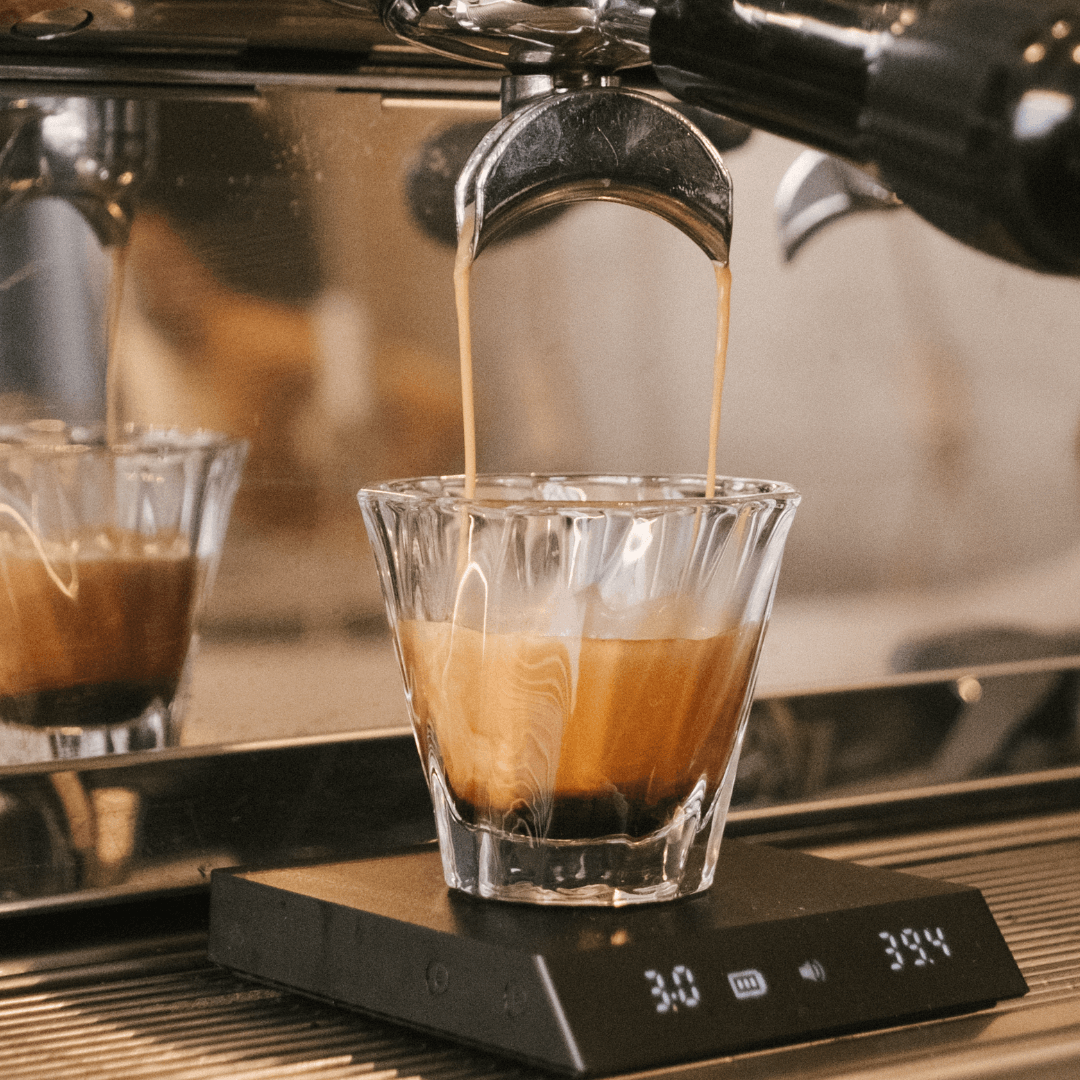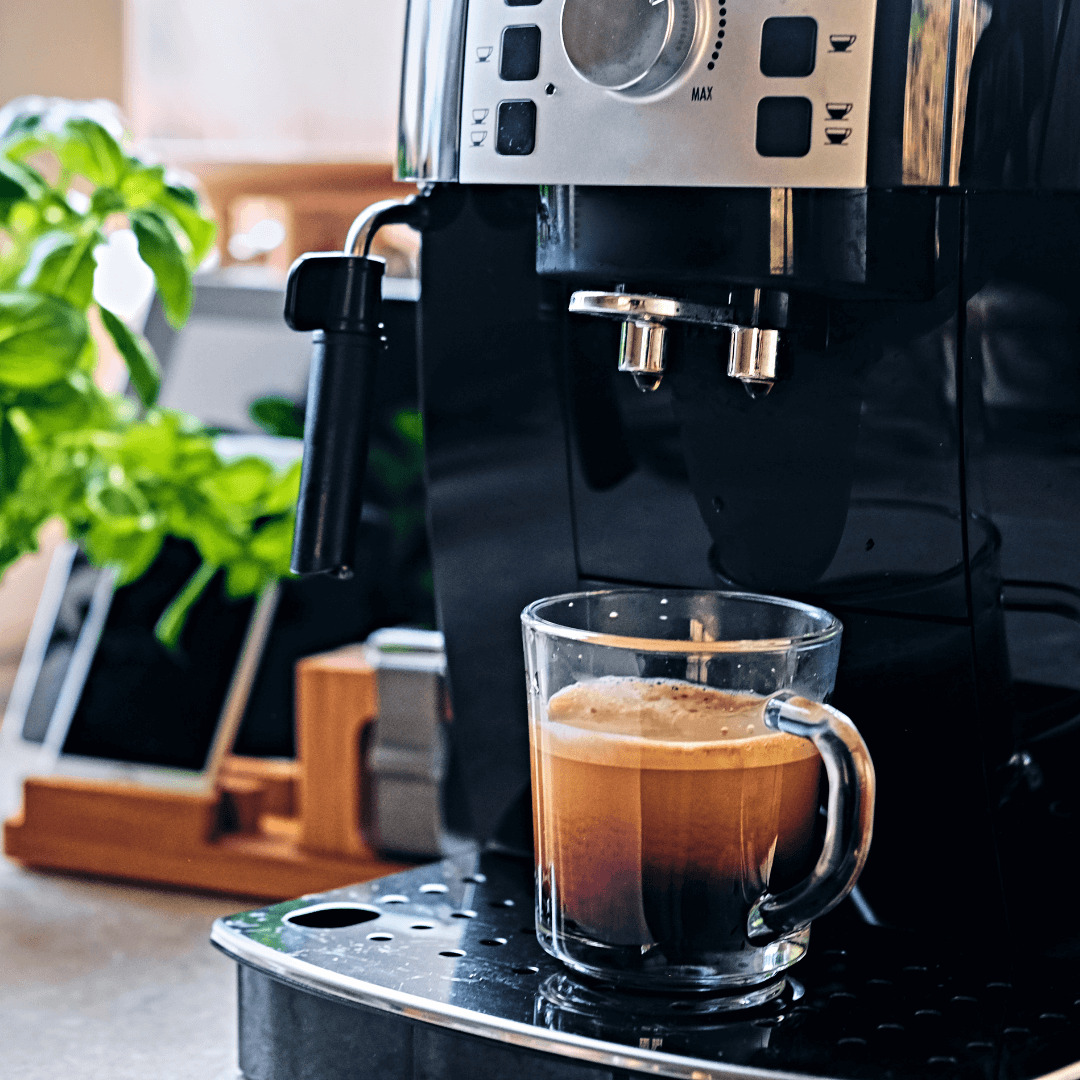Article: How to choose your coffee maker in 2025 - Manual machine

How to choose your coffee maker in 2025 - Manual machine
At Café Castelo, we receive several questions every week like:
"Which coffee machine do you recommend?"
Although we don't sell coffee makers - our specialty is coffee - we understand that choosing the right machine is a real headache, and consumers want more neutral, expert advice. As we're often consulted on this subject, we've decided to offer you two separate articles: one on automatic machines, and one, like this one, on manual machines, to help you make an informed choice.
Why opt for a manual machine?
Manual espresso machines are popular with coffee lovers who want full control over their brewing. Unlike automatic machines, manual machines give you the reins of the process: from dosage to extraction pressure.
And it's not just a question of purism. There are very solid technical and sensory reasons behind this choice.
1. Total control over infusion
A manual machine allows you to set :
-
Coffee dosage
-
Pressing
-
Extraction time
-
Water temperature
- Pump pressure
This level of control allows you to adjust every parameter to get the best out of your coffee. For beans like those from Café Castelo, with their complex profiles, it's the assurance of unleashing their full aromatic richness.
🧠 As the Italian brand Gaggia sums up: "Manual machines make it possible to live, at home, the traditional barista rituals."
If you want a manual machine, you should also ask yourself: What's the difference between a pressurized and a non-pressurized manual machine?
Manual machine with pressurized filter holder
This type of machine is designed to facilitate coffee extraction, even if grinding, tamping or quantity are not perfectly controlled. This is usually the case with more affordable consumer machines. It's an excellent option if you're just starting out, or if you're looking for a simple way to make espressos.
How it works:
The filter holder is fitted with a pressure-retaining mechanism (often a small hole at the bottom) which artificially recreates the resistance required for proper extraction.
Advantages :
-
Easier to use
-
Less sensitive to grinding or dosing errors
-
Crema even with pre-ground coffee
Limits :
-
Less control over extraction
-
More standardized results
Manual machine with non-pressurized filter holder (professional)
This type of machine requires greater precision in coffee preparation, but offers far superior results if properly mastered. This is what we find in semi-professional and professional machines.
How it works:
All the pressure required comes from the coffee itself: from the fineness of the grind, the tamping and the correct filling of the filter holder. Coffee acts as a natural resistance to water.
Advantages :
-
Better control over taste, balance and texture
-
Extraction closer to the grain profile
-
Brings out the best in specialty or freshly roasted coffee
Limits :
-
Requires a good mill and a little practice
-
Less forgiving of errors (grinding too coarse = under-extraction, too fine = blockage)
2. Quality in the cup: cream, complexity, consistency
Manual machines are renowned for producing :
-
A richer, denser crema
-
Extraction that brings out the coffee's fine notes
-
More reliable thermal stability on top-of-the-range models. Some customers complain that the coffee is never hot enough.
3. An important point: black (full-bodied) coffees and manual machines
Many customers tell us:
"I bought a manual machine, but they told me I couldn't buy strong coffee anymore!"
Many customers share with us their astonishment after buying a machine, especially when they try to use a dark, full-bodied coffee. This is often when they discover a little-known fact: dark coffees are not always ideal for all automatic machines, but that's not the end of the story!
The aim of roasting is to create what we call caffeol - the essential oils in coffee. These are the essential oils in coffee, which give the cup its aromatic richness. The further you roast, the more you develop these oils. And that's exactly what we're looking for in a full-bodied coffee: a more intense, enveloping profile. You can't have a full-bodied coffee without dark roasting, and dark roasting means more oils. It's normal, it's intentional, and it's what makes a full-bodied coffee so tasty. However, at Café Castelo, our emphasis is on balancing the amount of oil with the intensity, so yes, there's oil present, but it's not an oily coffee that's not compatible with your coffeemaker. We have 28 kinds of coffee, so don't worry, we have excellent customer service who will recommend you according to your coffeemaker and your tastes.
Oil won't break a coffee machine. It's important to say that. However, in an automatic machine, these oils can accumulate more quickly in the grinder or brewing unit. This is why many manufacturers recommend using mild to medium-bodied coffees: they naturally contain less oil, and therefore clog internal components less.
If you're a lover of full-bodied or velvety coffees, in both cases, manual extraction is more interesting for the finer range of your coffee's aromatic profile. For a more complete coffee experience, with fuller-bodied, more complex coffees and better extraction, manual machines are often better suited. They require a little more involvement, but offer much greater freedom in bean selection and extraction.
4. Cost, durability and maintenance
Manual machines generally have :
-
Lower initial purchase cost than high-end automatics
-
Longer service life, with fewer electronic components
-
Simple maintenance (descaling, unit cleaning)
In the long term, they are more economical and durable.
5. A more sensory, more satisfying approach
Preparing coffee by hand also means stopping, observing and feeling.
The gestures, the concentration, the smell of the ground beans... It's all part of a ritual.
It's not just coffee. It's an experience.
💬 "There's a unique satisfaction in mastering your espresso from A to Z. You're not just drinking a coffee. You're tasting the fruit of your own precision." - Testimonial from a loyal Castelo customer since 2010
Suggestions from reputable brands (tested by enthusiasts)
Here are a few well-established brands of manual machines to suit all budgets:
Beginners or those who want a good, easy-to-use machine:
-
Breville - Excellent option for beginners. Value for money, reliability, simplicity.
-
La Pavoni - Italian icon, retro design, for purists.
-
Seaco - European design, renowned for its thermal consistency.
-
DeLonghi Dedica or La Specialista - Compact, efficient, for heavy-duty domestic use.
- Gaggia - Good thermal stability, sturdy construction, Italian reliability
Intermediate to advanced
-
Lelit Anna or Lelit Victoria: Italian brand with PID regulator (precise temperature control), powerful steam, high-quality workmanship.
-
Bezzera Unica: Semi-pro construction with E61 group, suitable for those who want precise extraction.
Enthusiasts / Pros at home
-
Profitec Pro 300 or Pro 500: High-quality materials, double boiler, very high stability.
-
ECM Classika: Retro look, high performance, E61 group too. A dream machine for demanding enthusiasts.
At Café Castelo, we believe that coffee is culture, not just consumption. And if you like to explore, adjust, understand your cup, then a manual machine will be your best ally.
And if you're still hesitating... wait for our next article:
👉 Automatic machines: the best choices for 2025.

Leave a comment
This site is protected by hCaptcha, and hCaptcha's Privacy Policy and Terms of Service apply.